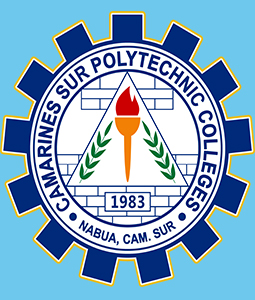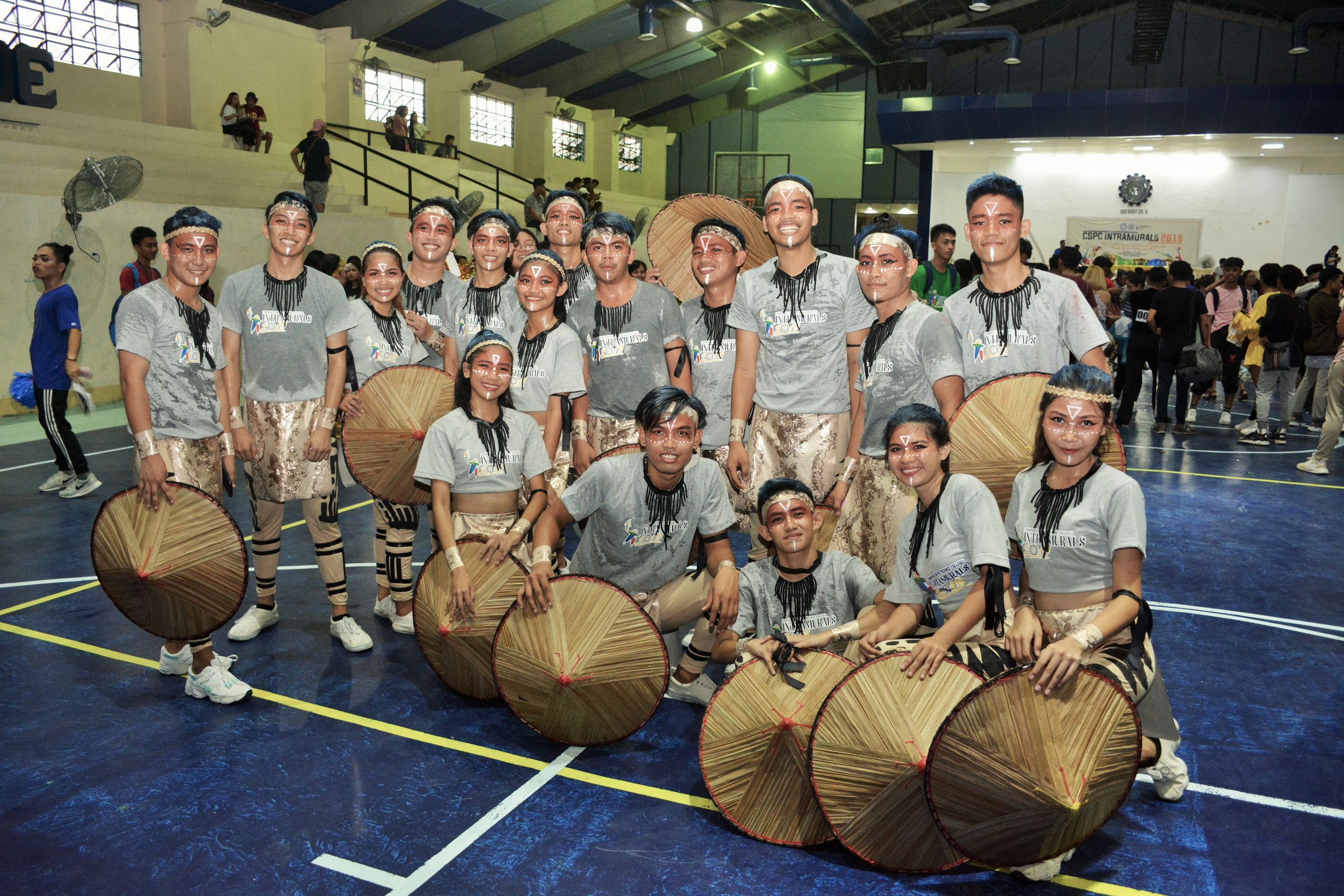
ENGR. MARTIN D. VALERAS JR.
Dean, College of Engineering and Architecture
coe@cspc.edu.ph
(054) 288-4421 to 23 loc. 126
@cspc.coe
The College of Engineering and Architecture is one of the six colleges of the Camarines Sur Polytechnic Colleges currently under the supervision of Engr. Martin D. Valeras Jr. as the dean. It aims to provide quality instruction and training in engineering through the ladderized curricula in Civil, Electrical, Mechanical and Electronics Engineering which will be responsive and relevant to the needs and development of the service area in particular and the country in general as well as develop total quality engineers and technology researchers for industry and society to maximally contribute to sustainable national development.
FACULTY PROFILE
| REGULAR FACULTY | |
| ERNESTO B. BERMIDO Associate Professor V |
IRENE VIRGINIA C. BLANQUERA Associate Professor V |
| EDNA P. MONTAÑEZ Associate Professor III |
FRANCIA H. TOMENIO Associate Professor V |
| YOLANDA A. SANTORCAS Associate Professor III |
CHRISTIAN KARL B. VILLALUZ Associate Professor V |
| COS FULLTIME FACULTY MEMBERS | |
| Erly O. Celiz Instructor I |
Neil Bryan P. De Lima Instructor I |
| JUN FRANCIS R. DEBIL Instructor I |
LARA JANE D. MENDOZA Instructor I |
| JENNY B. ESPEJO Instructor I |
JOHN MARLO O. GOROBAO Instructor I |
| REGULAR/PLANTILLA FACULTY MEMBERS | |
| EDDIE L. CABALTERA Associate Professor V |
WENCESLAO D. GAVINA Associate Professor V |
| WENIFREDO L. PACER Associate Professor V |
VIRGINIA V. PONTILLAS Associate Professor V |
| MARTIN JR. D. VALERAS Instructor I |
JOSE EDUARDO II B. CERILLO Instructor I |
| COS (Full Time) FACULTY MEMBERS | |
| MA. GRACE R. ABALLA Instructor I |
ROSALIE I. GUTIERREZ Instructor I |
| RONER P. ABANIL Instructor I |
CHRISTIAN S. NABIO Instructor I |
| RODAVE G. PRESTADO Instructor I |
EDUARDO A. CABANTING Assistant Professor III |
| ERIC N. VELITARIO Instructor I |
|
| COS (Part-Time) FACULTY MEMBERS | |
| MARBEN S. RAMOS Instructor I |
|
| REGULAR/PLANTILLA FACULTY MEMBERS | |
| RADMAR B. TAÑAMOR Associate Professor V |
LEO E. LUCEÑA Associate Professor IV |
| BONIFACIO B. BUYET Associate Professor III |
SAUL J. EBONITE Assistant Professor IV |
| JOEFFREY D. BUSTINERA Instructor I |
CHRISTOPHER C. GUTIERREZ Instructor I |
| RODOLFO JR. A. MERCA Instructor I |
|
| COS (Full Time) FACULTY MEMBERS | |
| LINO D. BERANGO Assistant Professor I |
ROMEO CESAR G. TUBIG Assistant Professor I |
| JOHN PHILIP III T. NADAL Instructor II |
PRECIOUS GRACE F. PEREGRINO Instructor II |
| APRIL JOY F. AGUADO Instructor I |
ANJANETTE B. BAAL Instructor I |
| JEREMIE C. BALANG Instructor I |
ANGELO M. BARGO Instructor I |
| EDRIANNE JAY L. DIMANARIG Instructor I |
PIA MARGARETTE B. LUCEÑA Instructor I |
| SYRA LYN B. MAGISTRADO Instructor I |
JOSEPH NATHAN B. MARQUEZ Instructor I |
| GILBERT A. PEÑALES Instructor I |
JUSTINE RHEYVAN R. TATARO Instructor I |
| ROBERT JAY L. RABEJE Instructor I |
|
| COS (Part-Time) FACULTY MEMBERS | |
| JOHN CHRISTIAN REY F. CELIZ Instructor I |
|
| ADMINISTRATIVE PART-TIMER FACULTY MEMBERS | |
| KAREN KAY O. BAGACINA Instructor I |
ALEXANDER IAN R. LAYSON Instructor I |
| JAVYIE B. MARGATE Instructor I |
|
| REGULAR/PLANTILLA FACULTY MEMBERS | |
| Benigno Manuel S. III Aquino Instructor I |
|
| ERNESTO B. BERMIDO Instructor I |
|
| MARY ANN A. MARTINEZ Assistant Professor I |
|
| COS (Full Time) FACULTY MEMBERS | |
| RONNIE MICHAEL S. CABALLERO Assistant Professor II |
|
| COS (Part-Time) FACULTY MEMBERS | |
| VANESSA ELLA FAY M. BERMIDO Instructor I |
|
| REGULAR/PLANTILLA FACULTY MEMBERS |
| SARAHLYN C. CATIMBANG Instructor I |

Be one of us!
Be a CSPCean Engineer!
Program Educational Objectives
Program Outcomes
By the time of graduation, the students of BSCE program shall have the ability to:
Program Educational Objectives
Program Outcomes
By the time of graduation, the students of the program shall have developed the ability to:
Program Educational Objectives
Program Outcomes
The Bachelor of Science in Electronics Engineering (BSECE) program must produce graduates who shall be able to:
Program Educational Objectives
Program Outcomes
By the time of graduation, the students of the program shall have the ability to:
Program Educational Objectives and Program Outcomes

Student Organizations
ELECTRICAL ENGINEER
2017 | 1st Place, Edilbert V. Tandaan, Jr.
2016 | 7th Place, Ronaldo E. Cruz Jr.
MASTER ELECTRICIAN
2018 | 2nd Place, Ace Roldan M. Legardo
ELECTRONICS ENGINEER
2003 | 6th Place, Wilson B. Solis
ELECTRONICS TECHNICIAN
2017 | 2nd Place, Karen B. Domamay
MASTER PLUMBER
2016 | 9th Place, Harold E. Ibarreta
2008 | 6th Place, Edwin S. Esplana
2008 | 10th Place, Ernesto F. Nierva Jr.
MECHANICAL ENGINEER
2017 | 3rd Place, Teofilo Gregorio L. Ayo IV
1995 | 9th Place, Josuel M. Terano
CIVIL ENGINEERING
2018 | 3rd Place, John Rey M. Pacturanan
2017 | 10th Place, Jovy B. Notorio
2014 | 10th Place, Ronald Miguel G. David
2004 | 18th Place, Jeffrey V. Esteve